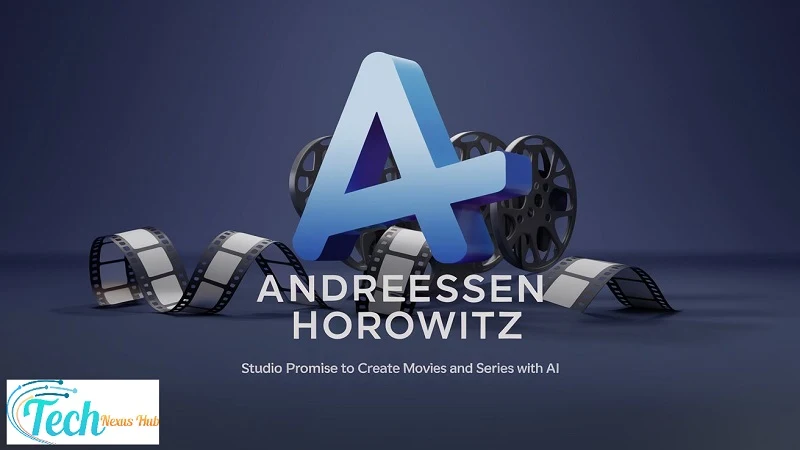Start-up studio Promise, funded by venture capital firm Andreessen Horowitz and ex-News Corp President Peter Chernin, said it would disrupt the entertainment sector and create films and series with the help of generative AI. This is a remarkable departure from how Hollywood translates its content ideas into a product.
Andreessen Horowitz-Backed Studio Promise to Use AI for Movies and Series
The studio that started on Tuesday announced that Moren’s announcement also comes ahead of its fundraising campaign’s successful launch. Such significant investors’ support proves that AI might bring a major change in the entertainment industry.
Recently Hollywood studios have been searching for methods to incorporate generative AI technologies into their activities. Through these tools, studios expect to avoid high cost besides enhancing the generation of additional contents more efficiently than the conventional ways.
Since generative tools are at the core of AI, it is possible to automate most of the production process, including the scriptwriting, creating visual effects, and even casting. This could make the film and TVs production faster and cheaper providing further opportunities for current and new studios.
Funded by Andreessen Horowitz, Promise looks to place itself as a leader in the use of AI to create content. The more studios look at generative AI, it becomes evident that AI will become an indispensable tool in filmmaking and television production in the future.
Promise to Develop AI-Powered Production Tools for Hollywood
The new startup called Promise was launched recently by Fullscreen CEO George Strompolos, ex-YouTube Jamie Byrne, and AI artist Dave Clark to capture the growing generative AI or GenAI market. The firm is in partnership with significant Hollywood players to design a pipeline of numerous pieces of content over a three-year period that will integrate AI in their manufacturing.
Muse is a flagship production software that has been specifically developed by Promise in response to existing production software that is suboptimal for the artist. We plan to roll out this tool as a way to expand generative AI’s applicability to every phase of movie and show production.
Promise team also shares this view stating that Muse is going to revolutionalise entertainment sector by providing more effective ways of creating content. Despite this, the author revealed that the software had the potential of decrease costs on production activities where artistic quality was not paramount.
Hollywood has previously tried to harness GenAI for what it is capable, but Promise wants to go even further. Muse poses such specific demands to the filmmaking and television production industries that the company is engaging the professionals from these fields to better answer the requirements.
As a relatively new company with AI engineering and entertainment background, Promise is getting prepared to enter the market and make a difference. With studios on the constant search for new methods to create content more efficiently and cheaply, applications like Muse have potential to reshape the entertainment creation process of the future.
AI Tools Revolutionize Film Production: OpenAI and Adobe Lead the Charge
In February, Open AI announced Sora – an AI output model that produces high-quality feature films from a text prompt. The growth of Sora has resulted in interest from Hollywood producers and agents who have approached the Microsoft backed firm with ideas about projects in the creative industries.
It means that newly created videos with help of Sora from the usual descriptions can be a huge benefit for the filmmakers, content creators, and studios. By applying the AI solutions, the creation of cinematic videos can be made much easier, cheaper and quicker than it is today.
It shows that Hollywood is investing in AI tools including Sora as the entertainment industry as a whole has been slowly incorporating generative technologies into the production process. Managers are keen to find out how the technology can be applied to optimise storytelling and media production in an industry that has been historically associated with inefficient custom and high costs.
On the same note, Adobe has entered the race with own revolutionary bit of Artificial Intelligence. Last month, the company released an AI model that can synthesize videos from text descriptions and becomes a major player in the new generation of artificial intelligence risotto.
Further advancement of AI tools increases compatibility with the actors of the tech sector and entertainment industry. What is at the core of these changes remains OpenAI and Adobe at the forefront of the film industry but the future of the filmmaking can drastically change when a regular director is able to implement their vision with a help of AI technologies.


